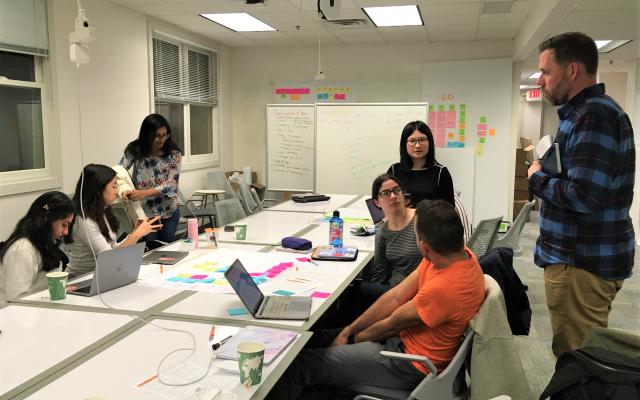What attracted you to the Keller Center?
I was attracted to the Keller Center by its fresh take on entrepreneurship in combination with its commitment to service. Given the rigor of Princeton academics, it can often be difficult to find a space where you can think freely and creatively. And that’s where the Keller Center came into the picture. As a hub of innovation, the Keller Center allowed me to creatively think about real-world problems and ways in which we can use the principles of design-thinking to combat them.
How are you involved with the Keller Center?
I am currently a part of Tiger Challenge, a design-thinking based social innovation fellowship. My team (Poppy) and I are working on the Alternatives to Opioids challenge through which we are examining ways to help patients access safe, affordable, and effective means for managing chronic pain. Over the course of the year, we have been collecting and synthesizing perspectives from medical experts, policy makers, and patients. In the upcoming academic year, we will be focusing on prototyping and implementing.
What do you appreciate most about the Keller Center?
What I appreciate most about the Keller Center is how there are no bad ideas. No boundaries. No wrong answers. We are allowed to let our minds race and think outside of the box. Whenever I step into the Princeton Entrepreneurial Hub, I feel a wave of relaxation as I unwind from the day by jotting ideas on stacks of post-it notes or by scribbling diagrams on the table whiteboards. The Keller Center is an environment that is conducive to creativity, innovation, and entrepreneurship.
Share an inspiring story about your time at the Keller Center.
As part of our Tiger Challenge project, I was conducting a field phone interview with a patient-turned-physician who dealt with an opioid addiction himself. His story—filled with pain, inspiration, and hope—brought tears to my eyes. It was heart-warming to hear how this doctor used his struggle with opioid addiction to ignite a path into medicine. And not only is he a successful pain management doctor, but he is also a passionate advocate and implementing ways to reform the system.
What advice would you have for students about getting involved at the Keller Center?
My advice for students getting involved with the Keller Center is to really strive to come in with an open mind. Things don’t always pan out the way you expected them to and it’s important to be flexible. Take it one day at a time while keeping sight of the larger goal!
How have you benefited from your involvement with the Keller Center?
I have benefited from the Keller Center by immersing myself in an environment that I may not have had the opportunity to do otherwise. As someone who has been conducting molecular biology research for the past six years, I love the microscopic levels at which biology and medicine meet. Tiger Challenge, however, pushed me to view medicine at a more macroscopic level as we investigated the systematic issue of pain management.
What are your academic or career goals?
I am currently pursuing a degree in Molecular Biology, with certificates in Global Health and Cognitive Science. In the future, I hope to become a physician who is equipped with the tools to tackle not only the molecular intricacies of disease, but also the broader sociopolitical issues of medicine.
